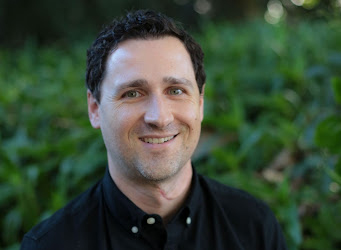A homecoming: Meet Rehab Med’s newest researcher in occupational therapy
1 June 2022

Tim Barlott returns to Edmonton to accept position as assistant professor in occupational therapy. Photo supplied.
We welcome Tim Barlott, recently appointed assistant professor, into the Faculty of Rehabilitation Medicine’s Department of Occupational Therapy. Originally from Edmonton, Barlott is a University of Alberta alumnus, having received a BSc in occupational therapy in 2008, a graduate certificate in community-based research and evaluation and an MSc in rehabilitation science in 2013. He earned a doctorate in sociology from the University of Queensland (Australia) in 2021 where his research topic was on allyship and freely given relationships in community mental health.
Barlott brings a wealth of experience to his role in the faculty. Before moving back to Edmonton, he was a faculty member in occupational therapy at the University of Queensland. He also has experience as an occupational therapist, addictions counsellor, youth worker, educator and participatory researcher.
To get to know Barlott a little better, we reached out and asked him the following questions:
How did you get into your area of research?
One of my areas of research is allyship — freely given, non-institutional relationships with people who have complex mental health challenges, and how these non-institutional approaches can support community building and reciprocal relationships between people.
My interest in mental health allyship started in 2014 when I moved to Brisbane, Australia. I was introduced, through a community connection, to Stanley. Stanley has a really complex background and involvement with psychiatric services — but I wasn’t invited to be a support for him; the hope was that we might become friends.
We met every Tuesday afternoon, and over time we did become friends. His mental health care manager thought he was too volatile to have a friend visit him at home, but we shared a coffee together in his home every week. We went for walks together, shared snacks at a local golf club, and generally enjoyed each other’s company. Friends look out for each other, so there were times when I would also help him sort out issues with his support services (they would not listen to him). We even had the chance to fly across the country together to visit his mom, something he hadn’t been able to do for years.
So I got to thinking, what do these kinds of relationships do? How might we foster freely given friendships between people as a community-oriented alternative in the mental health sector? That’s what got me interested in allyship, being alongside someone who experiences marginalization.
What’s the most rewarding aspect of your work?
My community-based work gives me the chance to meet so many different types of people — people with lived experience, community members, mental health service workers, academics — all on a flattened hierarchy.
What’s the most challenging aspect of your work?
Finding time to nurture and develop community relationships amidst the competing demands of my work schedule. Doing community-oriented work means that you need to move at a slower pace sometimes, and prioritize relationships over tasks and outputs. That can be difficult.
Where do you want your research to be in five years?
In five years, hopefully, I can look back and see that my research has had some sort of affirmative influence on the lives of people who experience disadvantage and complex mental health experiences. I hope to advance non-institutional and community-based approaches that give people space to thrive as citizens in society. In five years I want to be able to look back and see that my research has been a part of that.
What’s the No. 1 piece of advice you give your grad students?
The biggest piece of advice I would offer, especially in the community health sector, is that research is a relational encounter. So focus on building relationships first, and then see how research might come out of that relationship.
If you could try any profession other than your own, what would it be?
ne thing I really like about research is that it’s a chance to be creative; I try to bring storytelling and creativity into my research. It would be way out of my comfort zone, but it might be fun to try performance art.
What are you enjoying most about being back in Edmonton?
I have a new appreciation for Edmonton’s river valley. My family and I have really found a home on the river valley trails. One thing to mention is that when I was in Brisbane, I developed an affinity for fresh oysters. I absolutely love them, and if anyone knows where to go for oysters in Edmonton, I’d love a tip!